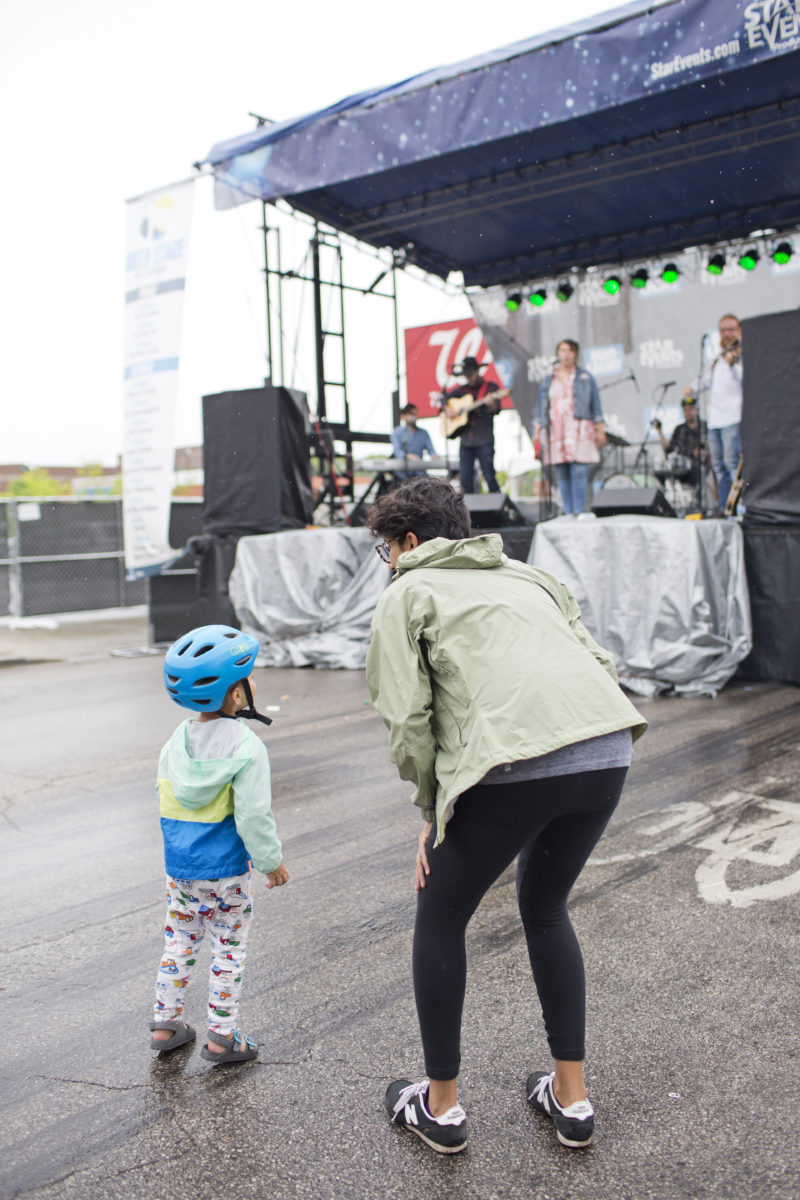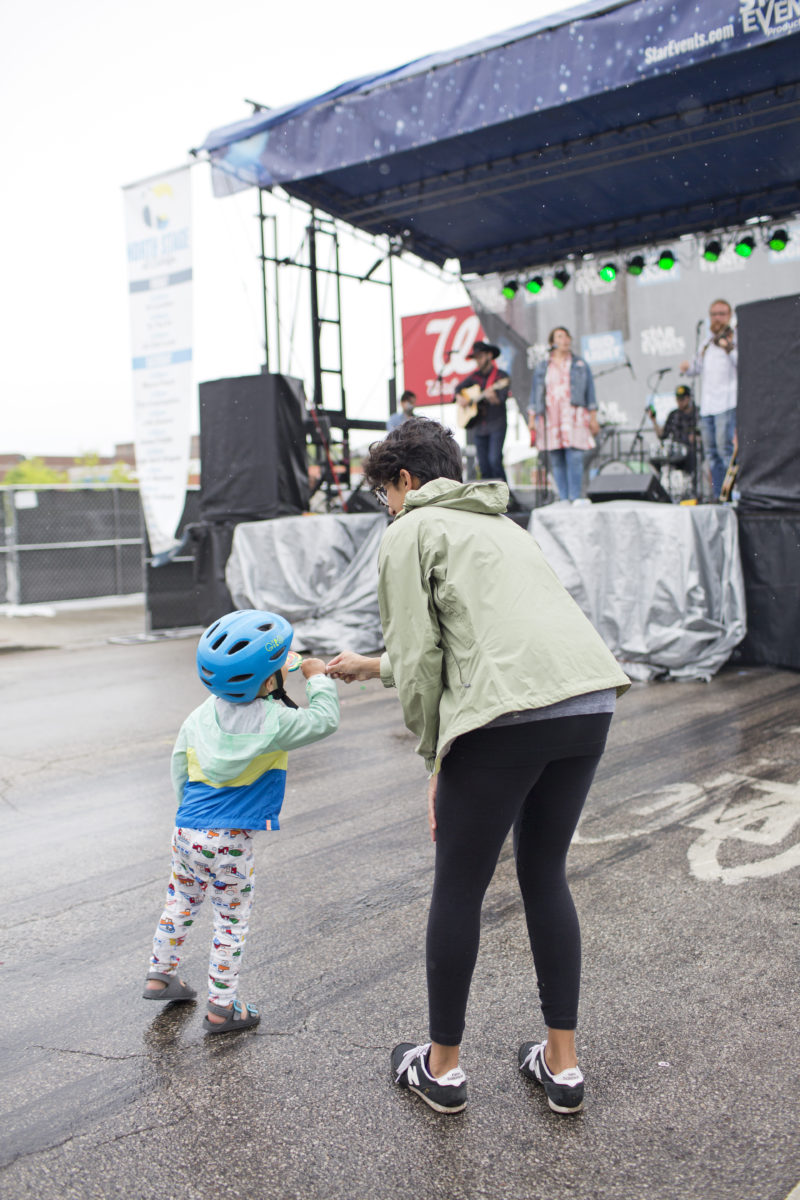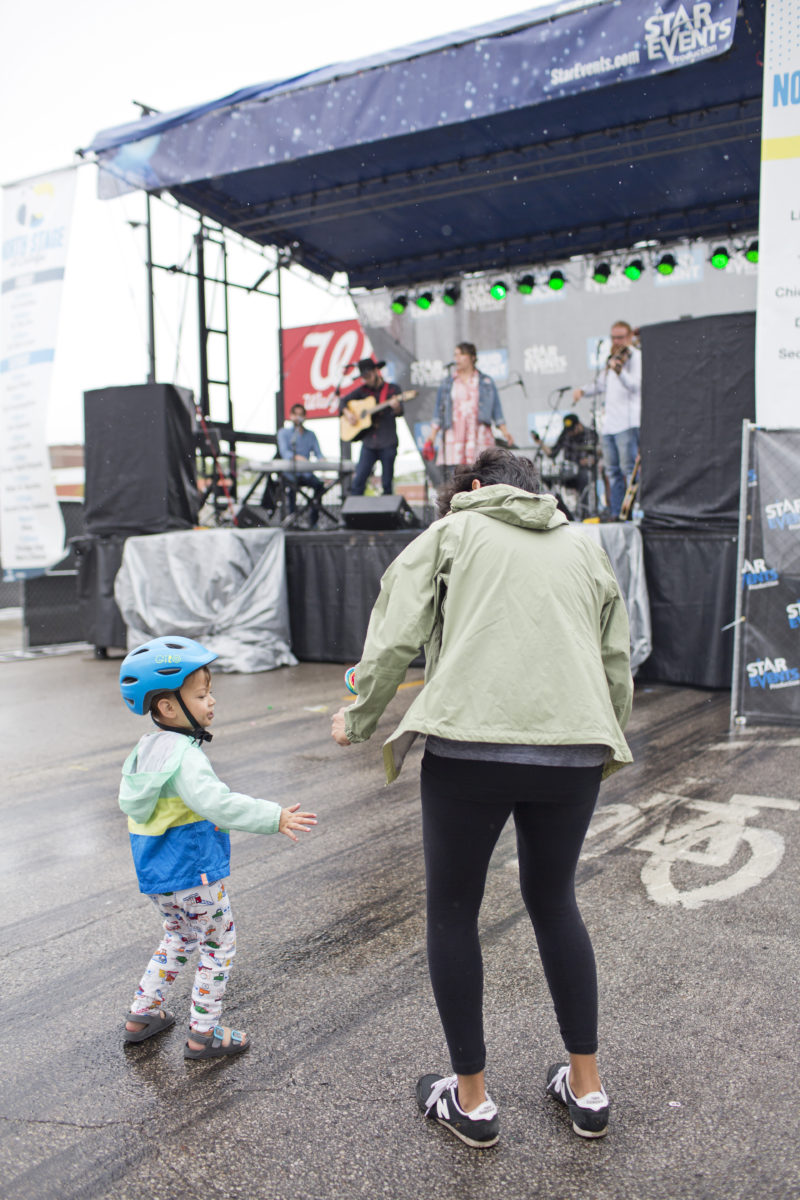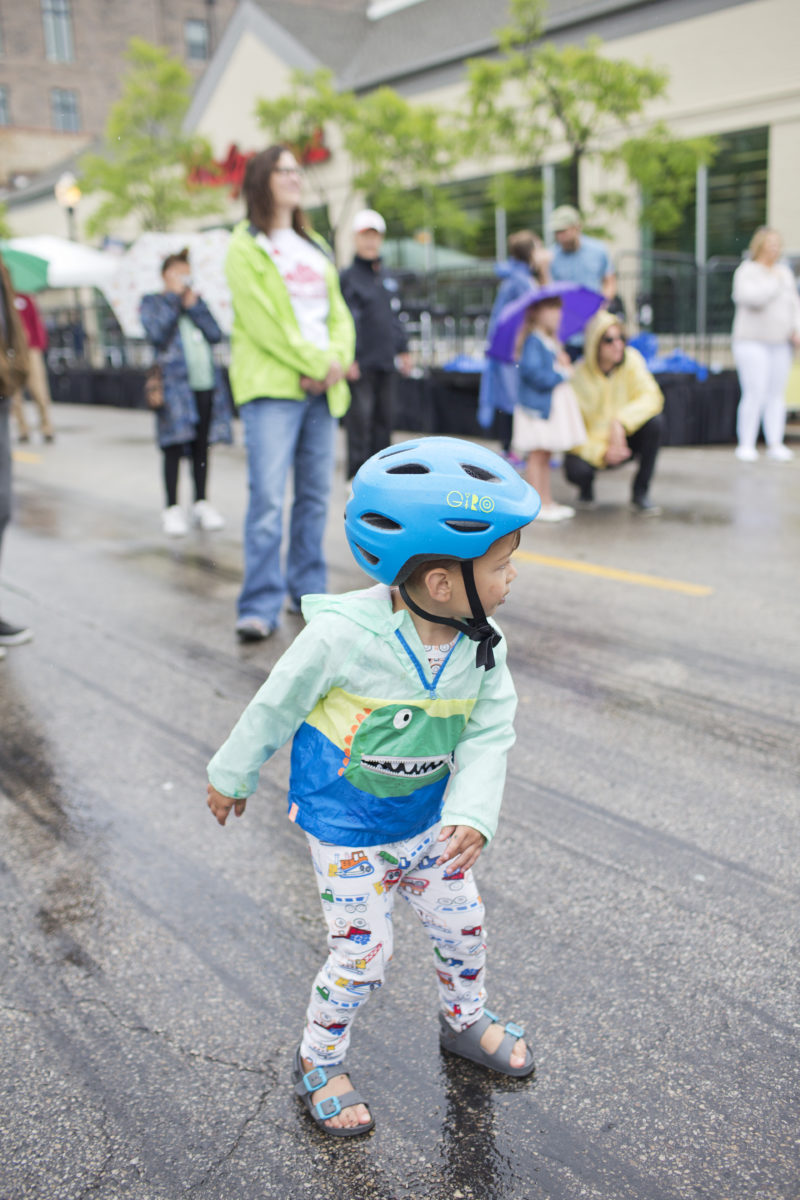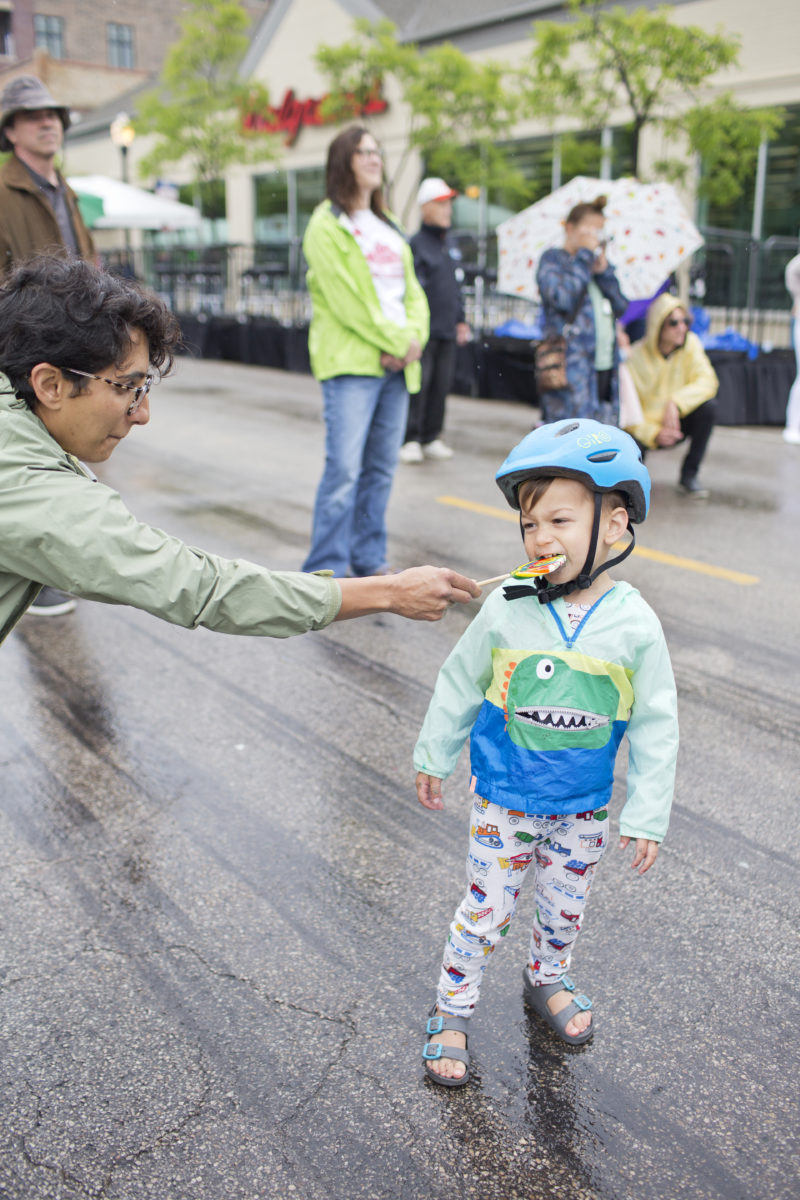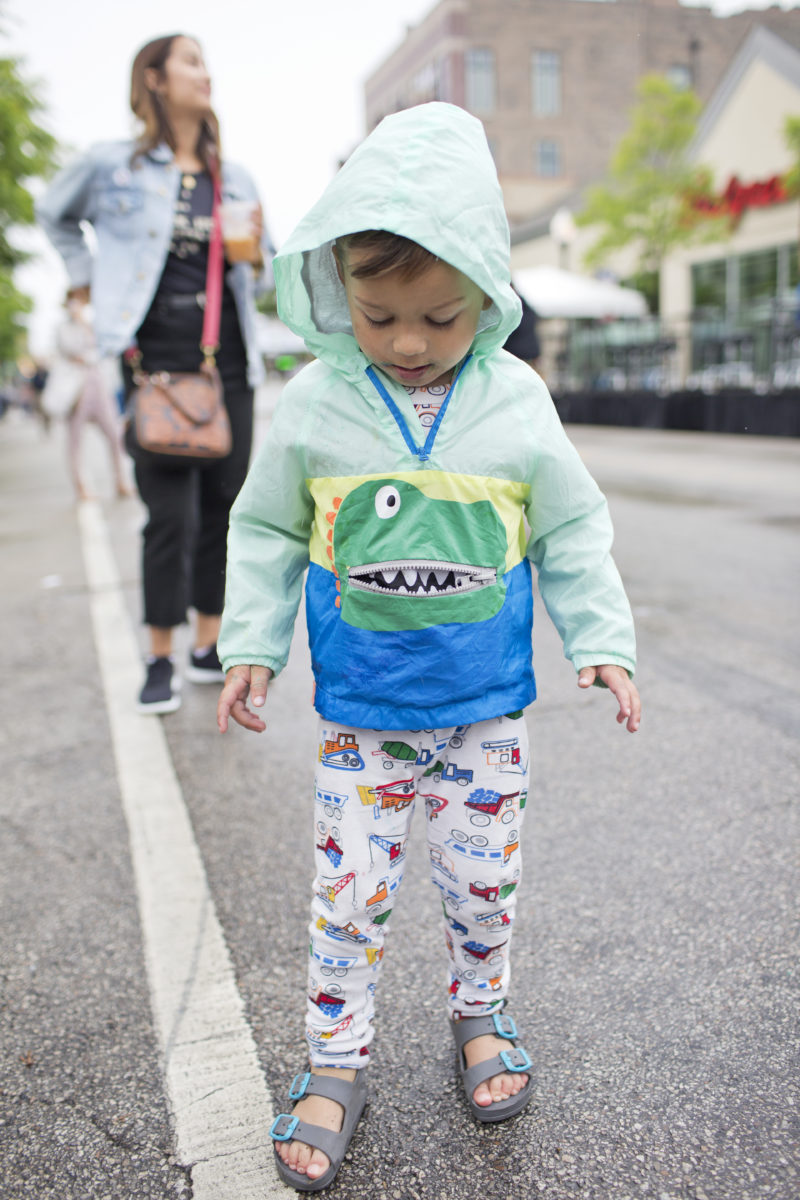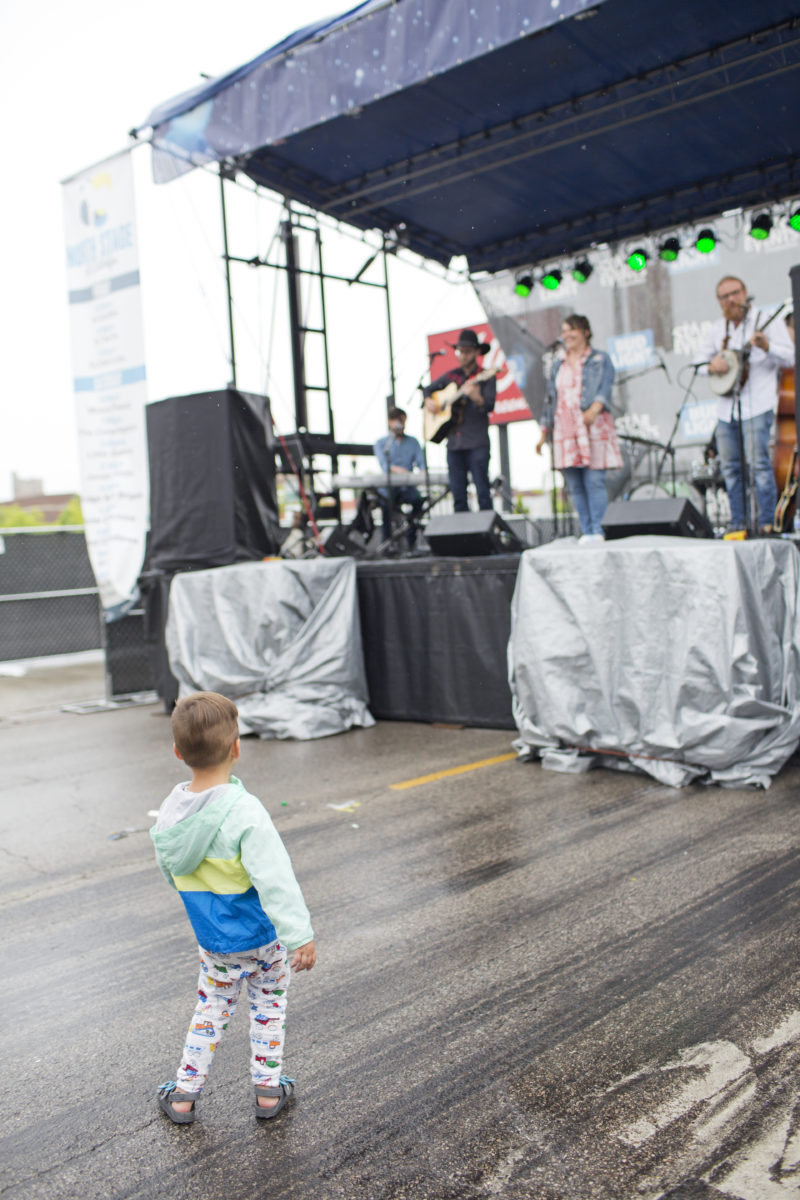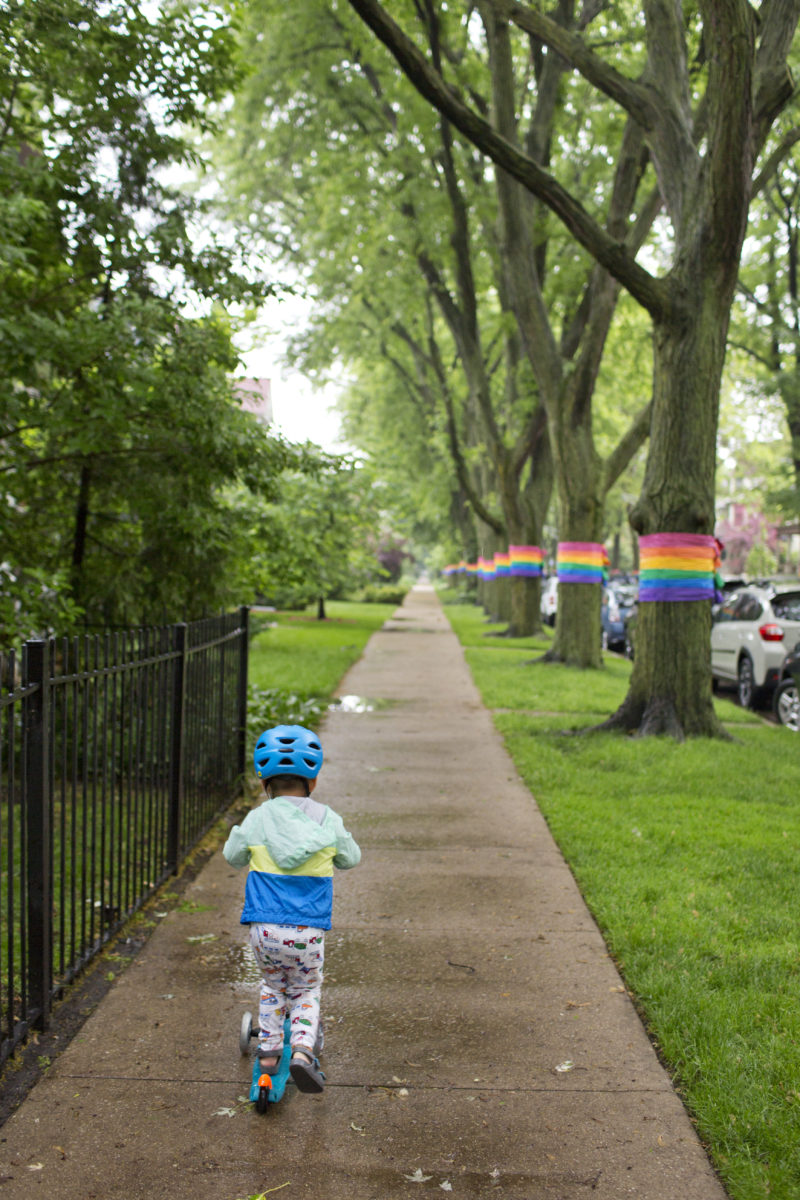
This is really a two-for-one blog post. It’s about all of the reasons we love raising Finn in a big city like Chicago, but it is also about how important it is to live somewhere you feel loved and accepted. Originally, it was just supposed to be about the former, but I think that I’m getting all up in my Pride Month feels, and the latter crept in.
Sona and I are both, mostly, from small towns. I say “mostly” because I was actually born in Pittsburgh, PA, and I spent most summers there for my entire childhood. Though my mom and I moved to Mississippi–and then Tennessee–when I was just a toddler, all of my family remained in the ‘Burgh, including my father.
So, while I went to school among a bunch of small-town southern kids who said “ma’am” and “y’all” and thought my Jewishness was totally foreign, I spent summers roaming the neighborhoods of Pittsburgh, sometimes on my own, and getting to experience what being in a city was like. I mean, I could walk to TCBY, and that alone pretty much sold me on city livin’.
Sona grew up in New Mexico and then Kentucky. Like me, she went to school in–and lived in–what we often call “one stop light towns.” The University of TN at Martin campus, where we met, was pretty much bordered by cornfields. Neither of us escaped the small-town lifestyle for college, either, but that ended up working out for us. (Cause, you know, marriage and a baby.)
There is a lot to love about small town living: wide open spaces, slow lifestyles, relative safety (we will get back to that, later), close-knit communities, wheat fields, and Chinese buffets, and high school evenings spent driving up and down Main St. just because there’s nothing else to do. Oh, and there’s the cheese dip. It all has its appeal.
But Sona and I don’t romanticize small-town living in the way that many do, and that’s because we’ve both experienced enough of it to recognize that, beneath the charm, there is something disquieting, too. When we moved to Chicago, we were both consciously making an escape.
Here’s some things I could tell you about living in a small town: How my first grade teacher spitefully refused to acknowledge that I was Jewish and my mother had to come to the school and fight for them to include Hanukkah in their holiday celebrations. How, as an A/B student, I was harassed by my high school principal during my senior year and regularly accused of being part of a “lesbian gang.” (No, I’m not kidding.) How one of my best friend’s dads, who I’d been very close with for years, once cornered me in the kitchen and told me, “In the wild, wolves who are gay are killed by the pack.” How Sona, who worked at Blockbuster during 9/11, was always asked whether she was a terrorist or knew a terrorist. How, even in 2005, her father warned us not to stop for gas on the hour-long drive between our college town and my parent’s home, noting that the KKK had been active recently. How, beneath all the small-town charm, we had to live with and carry and fear these sorts of things. Always.
“I knew that, once you left, you’d never come back,” my mom once told me. And I think she was right. As much as Sona and I are quick to admit that we don’t think we’ll live in Chicago forever, we are equally quick to say that we could never return to small-town living, again.
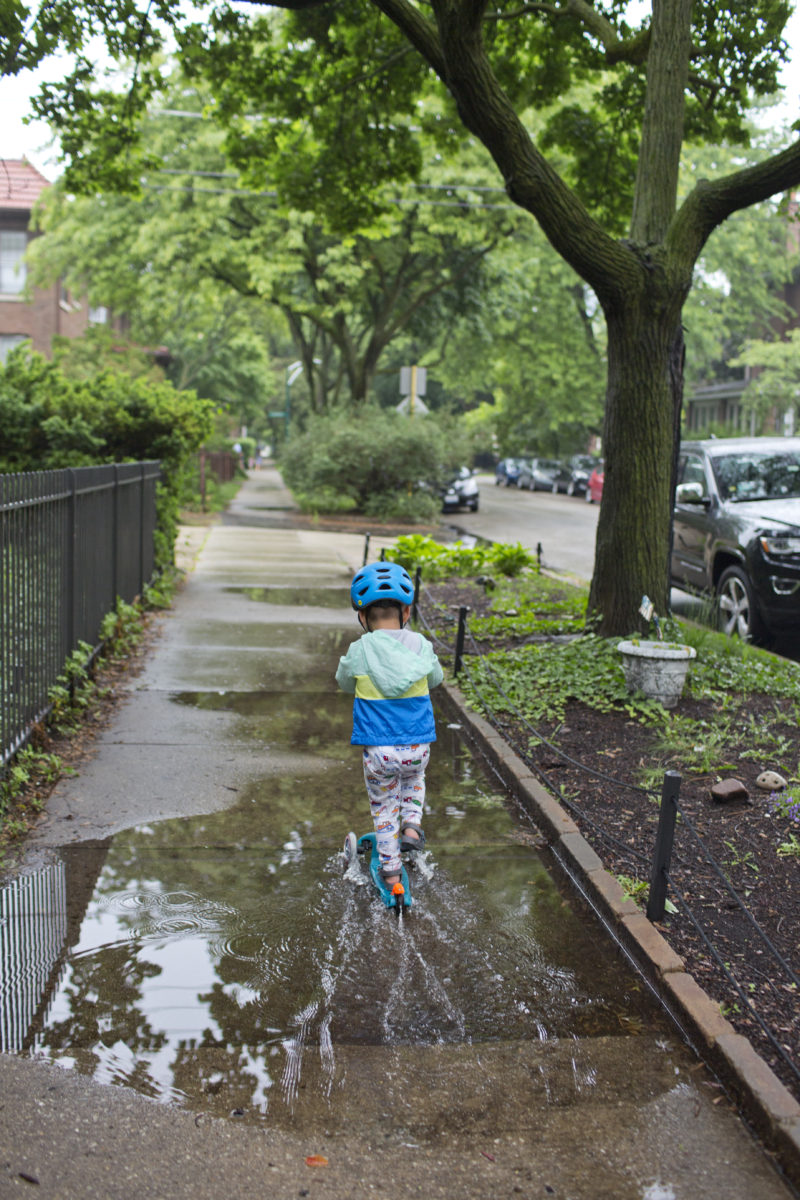
There are innumerable reasons why we love Chicago. As my now late idol Anthony Bourdain said, “You wake up in Chicago, pull back the curtain and you KNOW where you are. You could be nowhere else. You are in a big, brash, muscular, broad shouldered motherf****n’ city.”
I fell in love with it the second we first drove down Lake Shore Drive during a college spring break trip to visit the city. Sona and I cruised down what would become my favorite road in the world, Lake Michigan gleaming to our right and the towering city to our left, and I said, “I’m going to move here.”
Two years later, I did.
There’s a lot to say about why Chicago is the place we want to call home, and I think I’ll say it again and again in a variety of ways on this blog, but the truth is also this: as much as we wanted to be in Chicago, we also wanted to escape the oppressiveness that is a small town.
Small towns can be oppressive for anyone, really. Sure, it’s nice that Mabel, who lives around the corner, will lend you eggs and watch your house when you are away and knew your Great Aunt Sally when they were little girls, but it can also be suffocating when everyone everywhere knows your business, has very strong opinions about your business, and prefers your business to align with the usual business of small town life.
But when you are Jewish and Indian and gay–and when your business looks very different from the rest of the town’s business–that suffocation be deadening.
I’m not saying that every small town in America is xenophobic or racist or antisemetic or homophobic, but I am saying that everyone has the right to live somewhere where they can walk outside, holding the hand of the person they love–even if that person is of the same gender and a different race–and not feel the boot heel of judgement pressing down on their necks.
Chicago gave us that–and continues to give us that. Here, we know that, most of the time, no one looks twice at us when we stroll through the neighborhood, chasing our son on his scooter. When we walk down the street, we don’t think twice about exchanging a small kiss or holding hands. When we go back to Tennessee, we are very conscious of where and when we can do those things–and very aware that doing so is inviting some sort of discomfort, both for us and for others.
Here, the in-take form at Finn’s daycare asked for the names of both parents–not for the names of the mother and father. Finn is not the only kiddo with gay parents at his school–not by a long-shot. Everyone talks openly about all of the different kinds of families, and it is part of the school’s culture that all kids feel, from the very start, that there is no such thing as one kind of family.
Finn talks about having 2 mommies in a very matter-of-fact way, as do his friends in his class. “There’s Finn’s other mommy!” they will say. We have never sensed that our family unit is, within that context, atypical. And, more importantly, neither has Finn.
When we go to the park in our neighborhood, everyone looks different. Not all kids are white. Not all families have a mom and dad. Not everyone speaks English. Finn is growing up in a space where he sees himself and his family represented on a regular basis. He’s growing up in a space where he learns, innately, that people are different, and that’s okay. He is living in the kind of community that models the kind of world we want him to live in, and I can’t imagine giving him a more valuable gift than that.
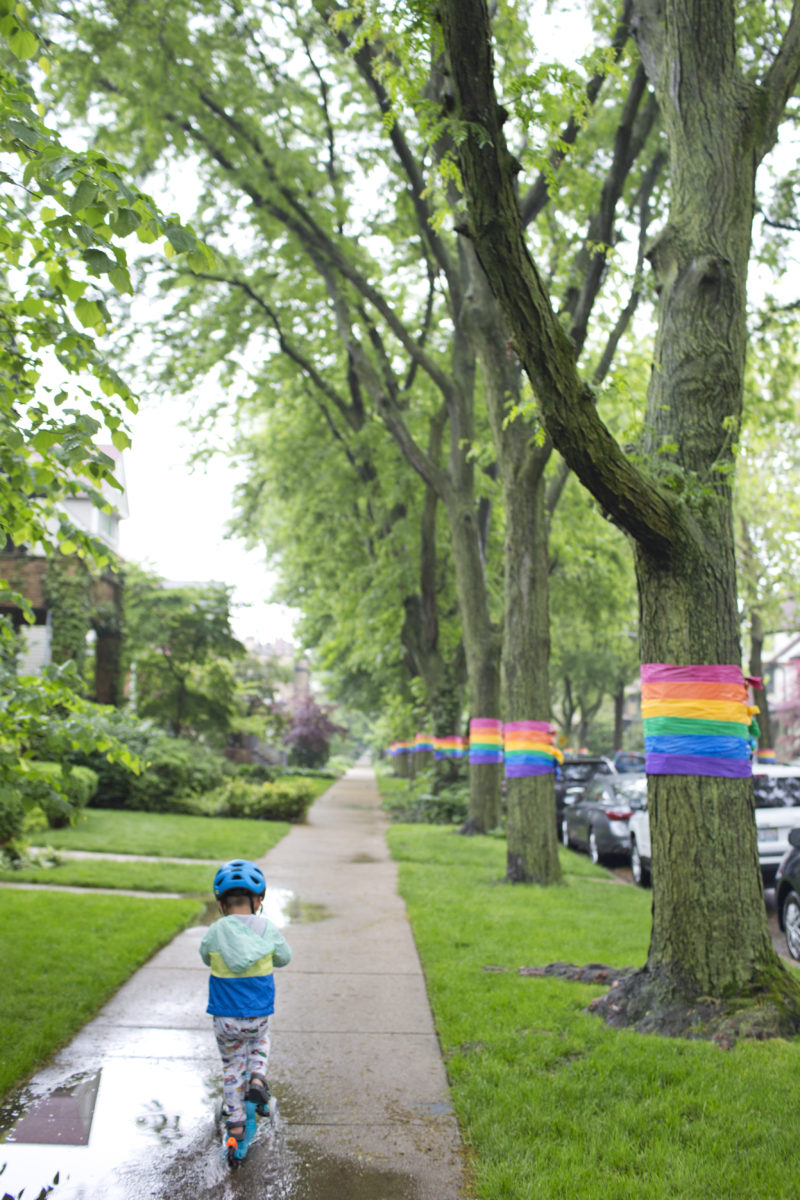
For us, living here provides us with just a little bit of freedom from the kind of suffocation we experienced most of our adolescent lives. People often talk about how they “can finally breathe” when they get out of the city, but Sona and I held our breaths for our entire lives until we moved to Chicago. Even still, you can hear us audibly exhale anytime we’ve been away from Chicago for long and we first catch a glimpse of the skyline, again.
I know we can’t protect Finn from the world forever–not even for long. But I do hope that, by growing up in a city that welcomes him and his family so openly, he’ll be able to steel himself against the world a little better. He’ll be a little more prepared. I hope that when he thinks back on what it means to be home, he thinks about Chicago, and he feels only love.
And here are some photos from our weekend, where we scootered through puddles and attended the Swedish/LGBTQ streetfest in our neighborhood, Andersonville, which is currently decked out in rainbows in support of Pride.
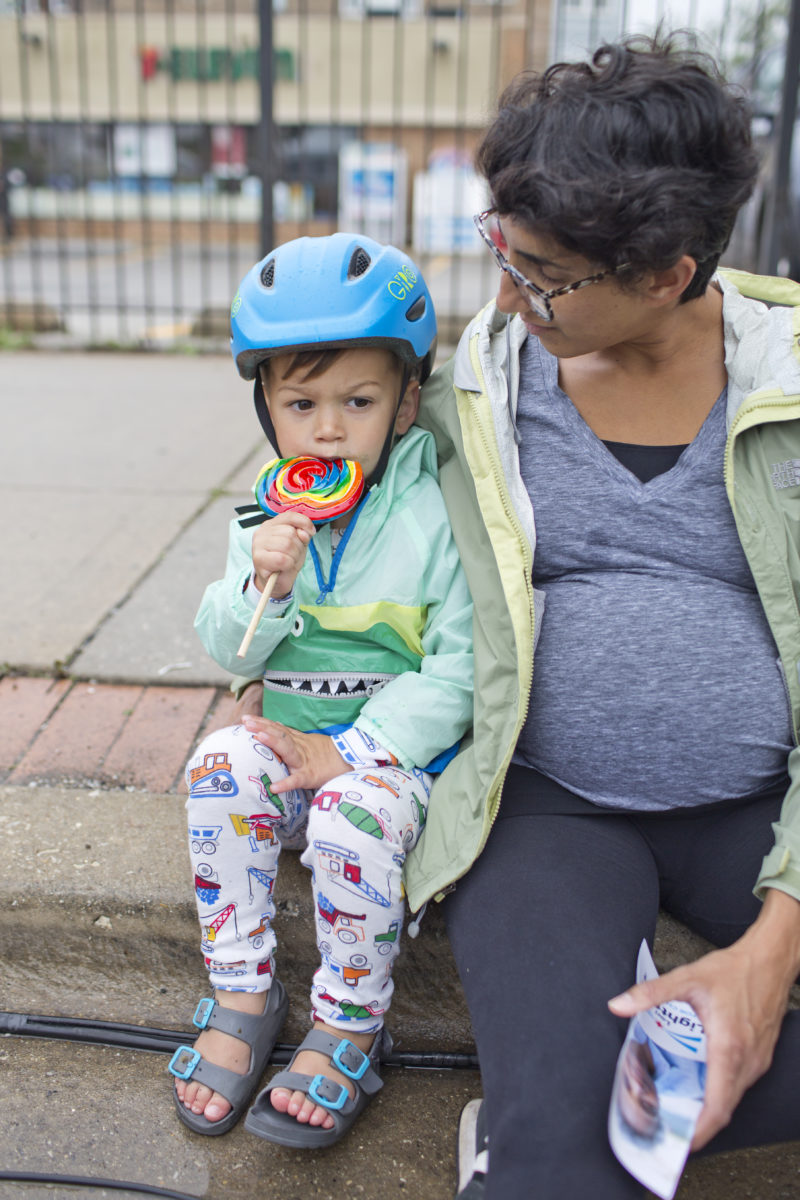
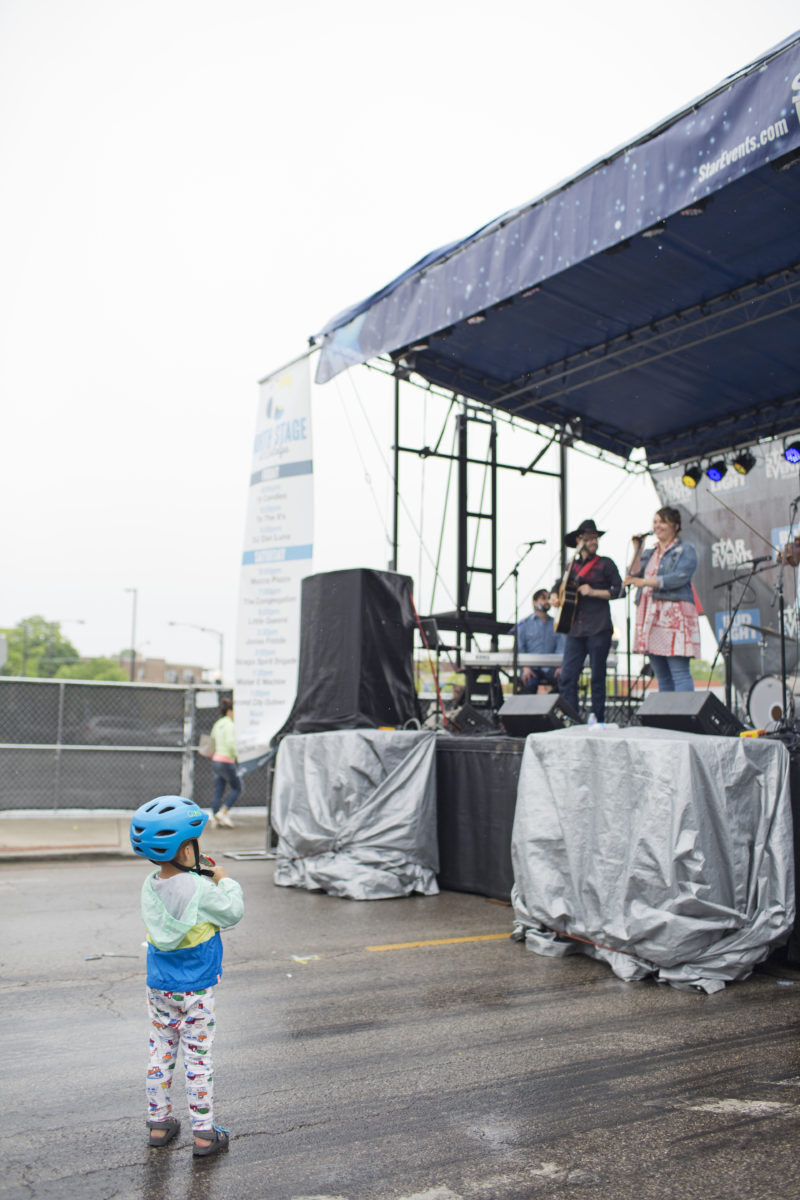
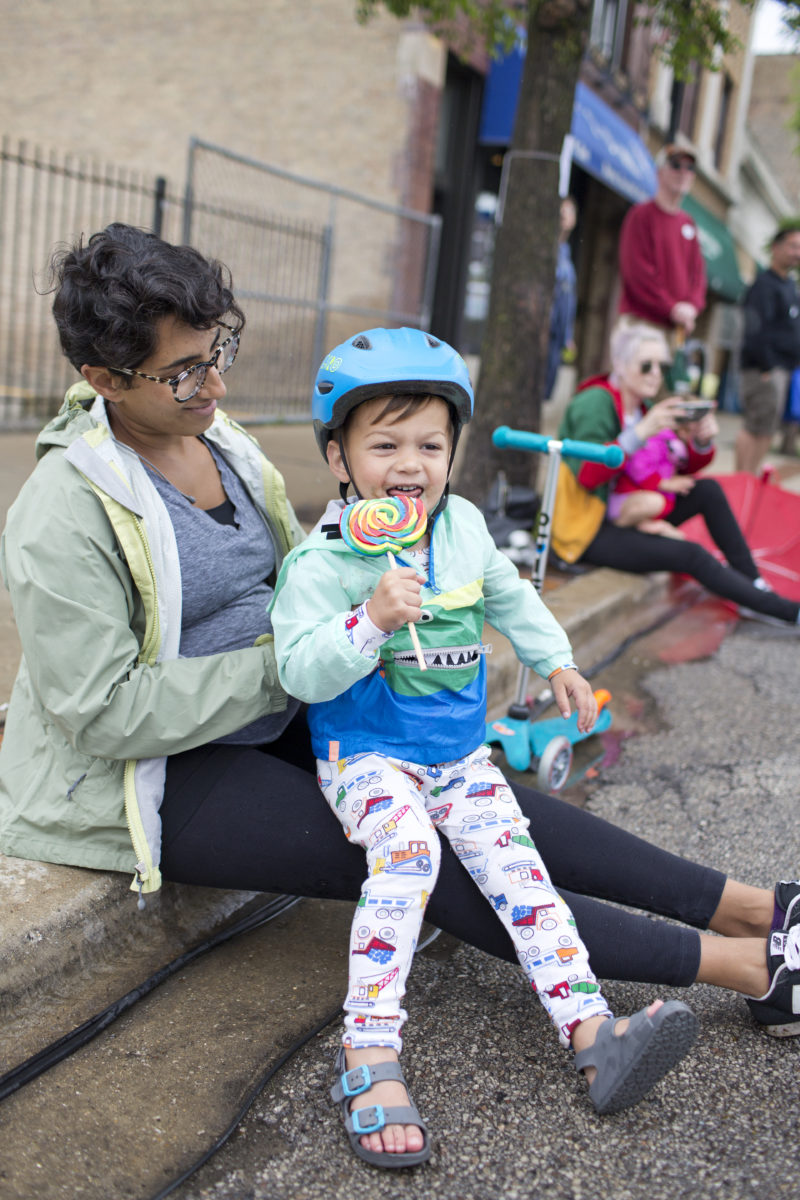
Finn loves music more than any child I’ve ever met. He’s danced since he could move, and he had a blast at this outdoor concert on Sunday, which we happened upon in our PJs. We danced in the rain.
